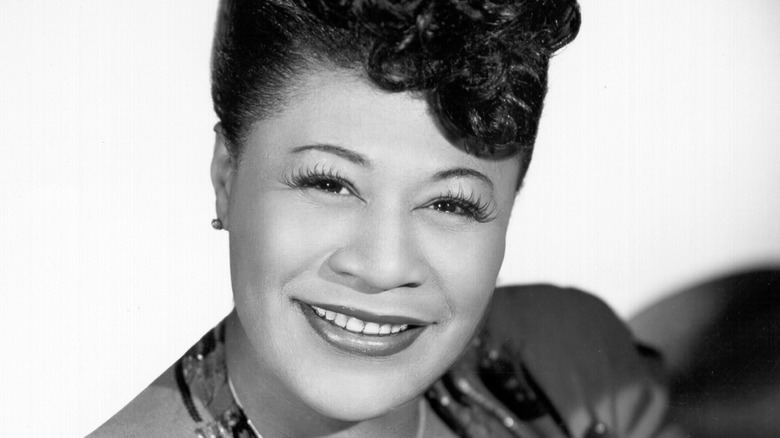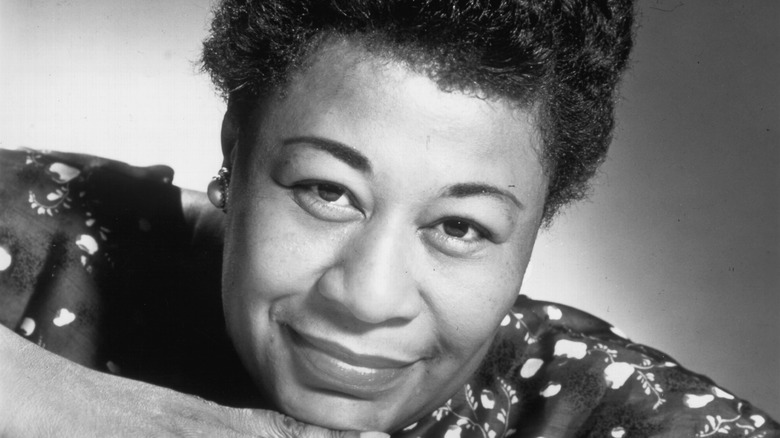The Truth About Ella Fitzgerald's Rocky Teen Years
Long before she was the first Black woman to win a Grammy award, Ella Fitzgerald experienced troubles while living in New York City when she was young (via Biography). Born in Virginia on April 25th, 1917, Fitzgerald's father left shortly after her birth. According to History, this led her mother, Tempie, to move to Yonkers, where Fitzgerald spent her childhood (per the Houston Symphony). Fitzgerald excelled in school and learned how to read music. Even at a young age, she wanted to be a star and neighbors remember her singing throughout the neighborhood.
In 1932, Fitzgerald's life drastically changed when she became an orphan at the age of 15 (via Mental Floss). Due to alleged abuse at the hands of her stepfather, she moved in with her aunt in Harlem. But soon, Fitzgerald dropped out of school and got involved in illegal activities. This included being a lookout for a brothel and running numbers (selling tickets to an illegal lottery). As a result, PBS states that she ended up at the Riverdale Colored Orphan Asylum in the Bronx.
Ella Fitzgerald was sent to a reformatory school
Fitzgerald did not stay long at the orphanage. Either due to escaping or overcrowding, she was soon sent to the New York State Training School for Girls in Hudson (via PBS). According to the Prison Public Memory Project, a judge sentenced Fitzgerald to three to five years at the notorious reformatory school on April 10th, 1933. He called her "ungovernable," and she arrived a week later. The school was racially segregated and Fitzgerald was banned from singing in the school choir due to her race. In addition, she and other girls were physically abused and placed in solitary confinement. Per the Houston Symphony, a government investigation later confirmed that this mistreatment was indeed happening at the school.
Somehow, Fitzgerald was able to run away. She ended back in New York City in late 1933 or early 1934, without a home and worse for wear. However, this did not stop Fitzgerald from singing and dancing. At the age of 17, her performance at an amateur night at the Apollo Theater jump-started her career. Fitzgerald won the $25 grand prize and met Chick Webb, a bandleader she started to perform with. Ultimately, she climbed to the top, winning 13 Grammys and selling more than 40 million albums (via Biography). Later known as "First Lady of Song," Fitzgerald died in 1996 at the age of 79. According to History, she never once spoke publically about her time at the reform school.

